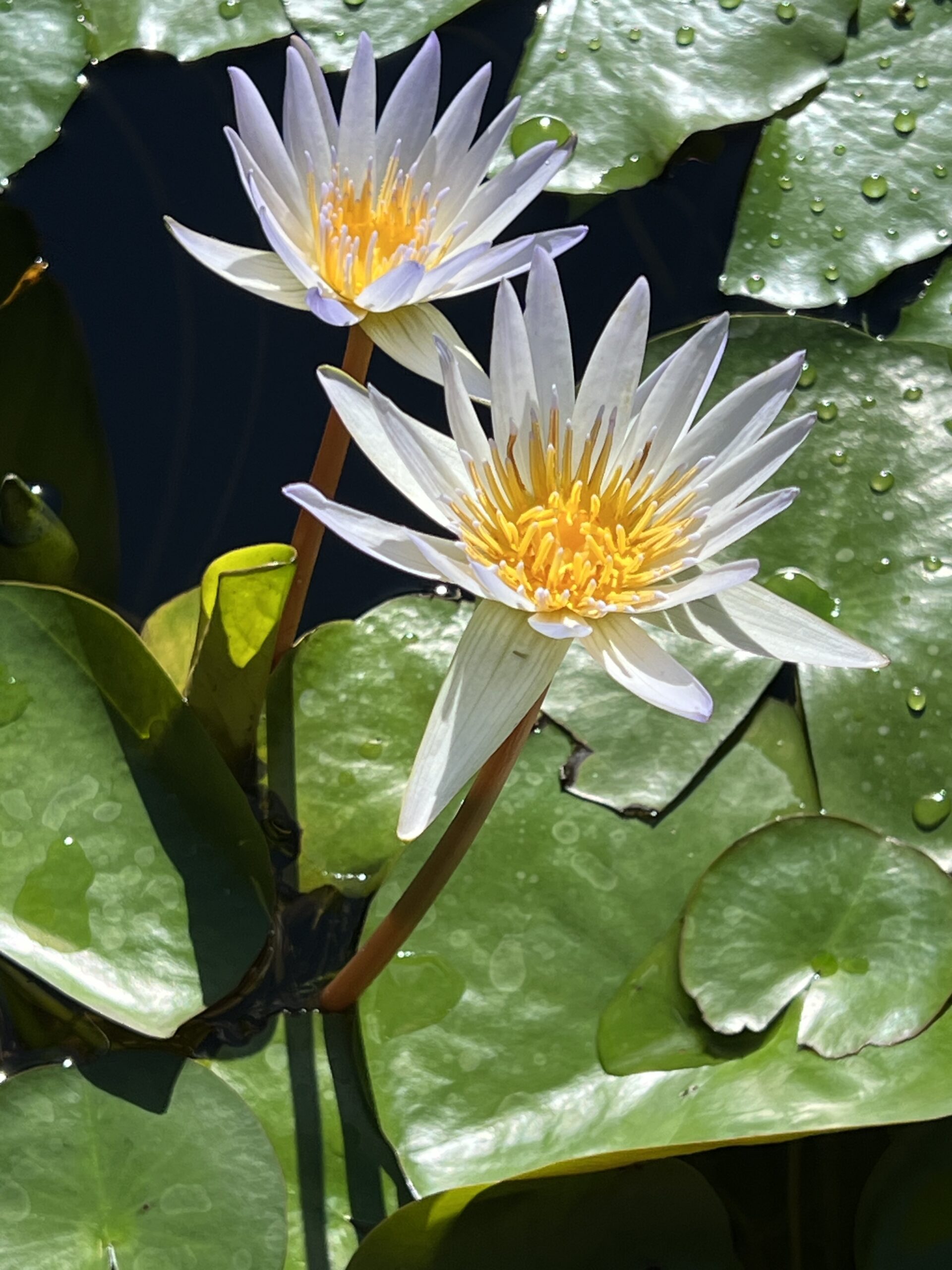“No, I’ve made up my mind about it; if I’m Mabel, I’ll stay down here. It’ll be no use their putting their heads down and saying “Come up again, dear!” I shall only look up and say “Who am I then? Tell me that first, and then, if I like being that person I’ll come up: if not, I’ll stay down here till I’m somebody else”… (Alice in Wonderland)
The other day a friend drove me up to Waimea, a bustling town north of Kona, and one at considerably higher elevation. I’m not talking snow and freezing cold, but definitely a winter of what my mother-in-law, when living on Galiano Island, B.C., called “soup-and-sweater-weather”. To my surprise and delight, in Waimea we encountered echoes of that Pacific Northwest climate in an abundance of ornamental cherry trees. Blooming in gardens and on boulevards, their sprays of glorious pink blossoms stirred nostalgic memories of spring in Vancouver.
But thoughts of home also stirred up a hornet’s nest of worries and uncertainties. I am perplexed about what’s in store for me when I return to B.C. Not just to B.C. but to some form of “life as I’d known it” before COVID. Or not? The potential transition from pre-to-post COVID life leaves me floundering in ambivalence and ambiguity. And equally confounded as to why this should be. As much as anybody, I desperately want this pandemic to end. But, like Alice, there’s a hesitation to leave the state of limbo that COVID has imposed. Expressing my conundrum to a friend, I took comfort in his observations on the topic:
“Fact is, we have all spent the past year with more or less one sole purpose: dealing with COVID. Once we significantly reduce our risk, our singular purpose will be fulfilled, kind of like the end of WWII, fall of the USSR, etc. We will all need new goals and doubtless will momentarily have the empty feeling that soon succeeds accomplishment.”
Prior to COVID, I was almost always laying tracks in front of a moving train. Preparing for travels near and far, planning big family gatherings, and generally knowing my future agenda for months on end. But throughout 2020 I got used to the devil I knew, and in this case, the devil I knew was COVID. Nowhere to go, nothing to do, nobody to meet. I gradually got used to that sense of suspended animation. Finally learned to just be where I was. Not planning the next trip, celebration or recreation. Not needing to have things work out, one way or the other. Pëma Chödrön refers to this pattern in her aptly named book: “Living Through Personal Crisis”. She writes about our resistance to feelings of uncertainty and ambiguity:
“In the middle way, there is no reference point. The mind with no reference point does not resolve itself, does not fixate or grasp. How could we possibly have no reference point? To have no reference point would be to change a deep-seated habitual response to the world: wanting to make it work out one way or the other. If I can’t go left or right, I will die! When we don’t go left or right, we feel like we are in a detox center. We’re alone, cold turkey with all the edginess that we’ve been trying to avoid by going left or right. That edginess can feel pretty heavy.”
The irony, I realize in retrospect, is that I got used to the detox!
I got used to a “new normal” of “not knowing”, of living for the moment and not being invested in a specific agenda (what would be the point?). As I contemplate what lies ahead I’m loath to get back on the hamster run that was once my habitual response to the world. It suddenly occurs to me that the transition I’m caught up in is NOT the transition from a pre-to-post COVID world, it’s from a pre-to-post COVID me! The concern is not what I will encounter when I return to B.C., but who, what and how I will be.
Unlike Alice waiting to be told who she is before she will leave the rabbit hole, the “me” who emerges from the detox that is COVID has to be informed by my own vision of who I want to be. And not only informed but inspired and motivated. As Gandhi would say, to be the change I wish to see in the world today.
Who, what and how will you be, post-COVID?
